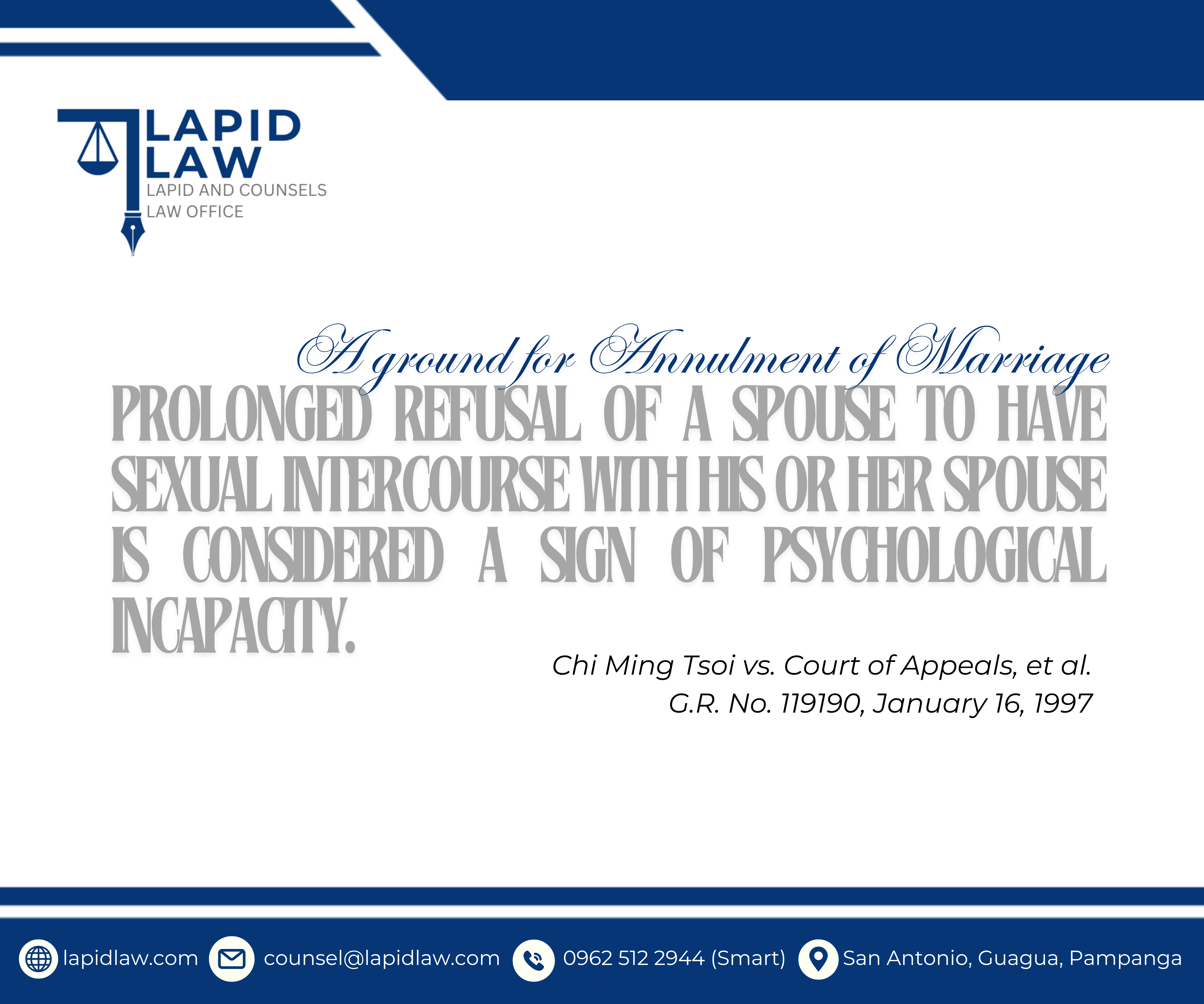Home / News and Updates

In Chi Ming Tsoi vs. Court of Appeals, et al. (G.R. No. 119190, January 16, 1997), the Supreme Court ruled that prolonged refusal of a spouse to have sexual intercourse with his or her spouse is considered a sign of psychological incapacity. Hence, once proven, it may be a sufficient ground annulment of marriage. Thus:
“Sexual intimacy is a gift and a participation in the mystery of creation. It is a function which enlivens the hope of procreation and ensures the continuation of family relations.
It appears that there is absence of empathy between petitioner and private respondent. That is — a shared feeling which between husband and wife must be experienced not only by having spontaneous sexual intimacy but a deep sense of spiritual communion. Marital union is a two-way process. An expressive interest in each other’s feelings at a time it is needed by the other can go a long way in deepening the marital relationship. Marriage is definitely not for children but for two consenting adults who view the relationship with love amor gignit amorem, respect, sacrifice and a continuing commitment to compromise, conscious of its value as a sublime social institution.
This Court, finding the gravity of the failed relationship in which the parties found themselves trapped in its mire of unfulfilled vows and unconsummated marital obligations, can do no less but sustain the studied judgment of respondent appellate court.”
Legal Disclaimer:
The content on this website is for general informational purposes only and does not constitute legal advice. Lapid and Counsels Law Office (Lapid Law) makes no representations or warranties regarding the accuracy or completeness of the information provided. Accessing this site does not create an attorney-client relationship. For legal advice specific to your situation, please contact a qualified attorney directly. Do not send confidential information via email or this website until a formal attorney-client relationship has been established.
© Copyright. Lapid and Counsels Law Office 2025. All Rights Reserved.